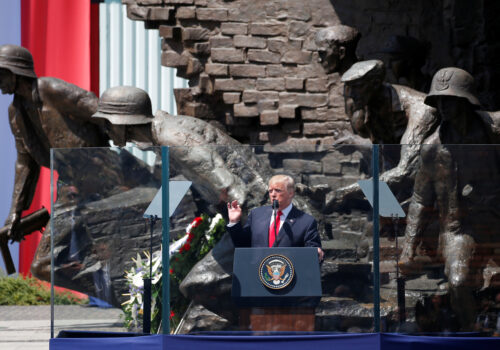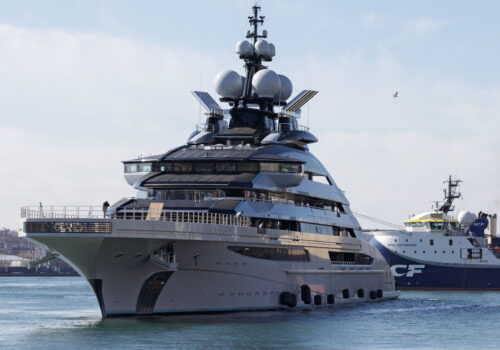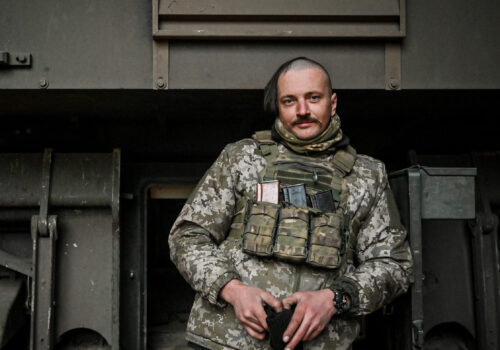Russia’s war on Ukraine is the greatest violation of international order and the greatest direct challenge to American interests in the past twenty years. As Russia’s military has failed on the battlefield, the Kremlin had waged a deliberate war on Ukrainian civilians and the Ukrainian economy. Estimates suggest that Ukraine’s GDP has fallen by up to 50 percent and the Ukrainian government needs $5 billion monthly from the international community to sustain operations.
The World Bank estimates that Ukraine needs $350 billion in aid for reconstruction and recovery, while some economists say the figure could be as high as $600 billion. At the same time, Western governments have frozen more than $300 billion in Russian financial assets since Moscow’s full-scale invasion in February 2022. There are growing calls for using frozen Russian assets to sustain Ukraine’s economy during the war and eventually to pay for Ukraine’s reconstruction. At the same time, others fear that doing so would undermine the integrity of the international financial system, even though there are precedents for this.
The Atlantic Council’s Eurasia Center and GeoEconomics Center host a moderated discussion on the role that frozen Russian assets could play in the sustainment and rebuilding of Ukraine’s economy.
Speakers
Secretary Lawrence H. Summers
Former US Secretary of the Treasury;
Charles W. Eliot University Professor and President Emeritus
Harvard University
Philip Zelikow
Professor of History
University of Virginia;
Former Counselor of the United States Department of State
Ambassador Robert Zoellick
Former President
World Bank
Moderator
Susan Glasser
Staff Writer
The New Yorker
Opening remarks
issue spotlight

Europe in crisis
War in Ukraine
Experts from across the Atlantic Council are assessing the consequences of Russia’s February 2022 invasion, including what it means for Ukraine’s sovereignty, Europe’s security, and the United States’ leadership.

The Eurasia Center’s mission is to enhance transatlantic cooperation in promoting stability, democratic values and prosperity in Eurasia, from Eastern Europe and Turkey in the West to the Caucasus, Russia and Central Asia in the East.

At the intersection of economics, finance, and foreign policy, the GeoEconomics Center is a translation hub with the goal of helping shape a better global economic future.



